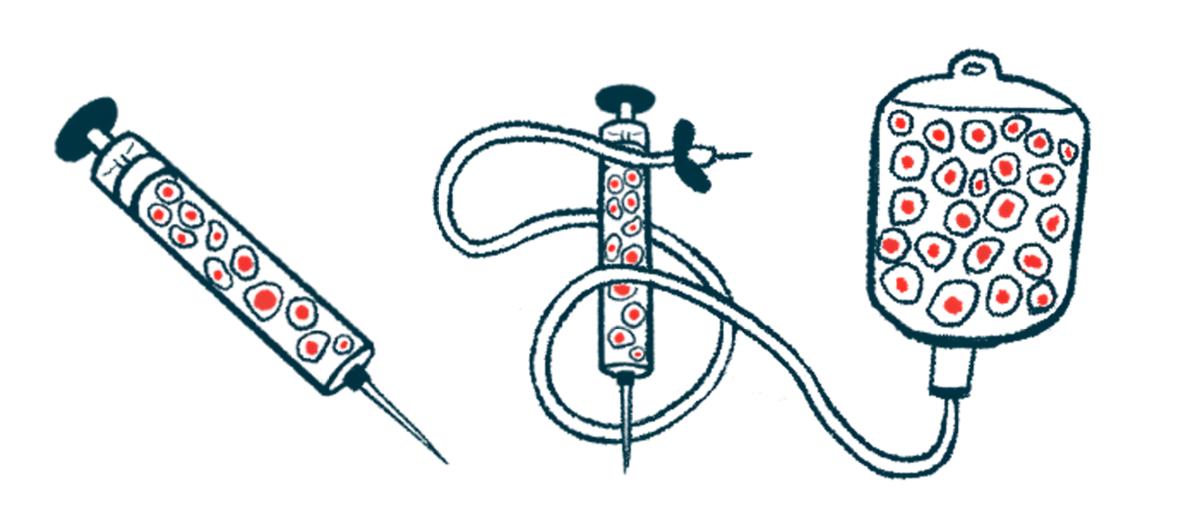Mesenchymal stem cell therapy shows potential: Study review
More study needed to support evidence, researchers say
Written by |

Mesenchymal stem cell (MSC) therapy is safe and well tolerated, and leads to improvements in disability and a reduction in lesion burden in people with multiple sclerosis (MS), according to a review of published studies.
MSC treatments also reduced levels of biomarkers associated with nerve damage and inflammation, as well as the growth of pro-inflammatory immune cells, while boosting markers of tissue regeneration, neuroprotection, and immune tolerance.
“MSC-based therapies show promising potential as a personalized approach to MS management,” the researchers wrote in the review study, “Immunomodulatory Role of Mesenchymal Stem Cell Therapy in Multiple Sclerosis: A Systematic Review,” which was published in Cureus.
The researchers said additional studies should be undertaken to confirm the therapeutic potential of MSC treatments in MS and provide “a clearer understanding of their long-term effects and mechanisms of action.”
MS is an inflammatory condition characterized by damage to certain areas of the brain and spinal cord. This damage disrupts communication within the nervous system, giving rise to a range of MS symptoms.
Inconsistent results
MSCs are adult stem cells found in the bone marrow, fat, and other tissues that can mature into several cell types, including bone, cartilage, and fat cells. These stem cells can also release signaling molecules that promote tissue repair and lessen inflammation.
MSCs have been explored as potential therapies for MS. But while some early studies reported reduced inflammation and disability and better quality of life, others have generated inconsistent results.
To know more, researchers in the U.S., the U.K., and China conducted a review of published studies to investigate the impact of MSC therapy in MS, focusing on certain biomarkers and clinical endpoints.
Eight studies involving 157 participants were selected for review. Three of them enrolled people with progressive forms of MS, and five enrolled people with all types of MS.
MSCs were administered either by injection into the bloodstream or the spinal canal. Treatment included MSCs derived from the umbilical cord, MSCs modified to secrete high levels of neurotrophic factors that support nerve cell growth, and MSC neural progenitors with the capacity to grow into nerve cells and other types of cells in the nervous system.
Studies generally showed reductions in biomarkers for nerve damage (NfL) and inflammation (CXCL13 and CCL2), as well as increases in a marker for tissue regeneration (MMP9) in the cerebrospinal fluid (CSF), which surrounds the brain and spinal cord.
Another recent study found that treatment with NurOwn, a cell-based therapy that includes MSCs secreting high levels of neurotrophic factors, increased CSF neuroprotective factors, including VEGF-A and HGF, and reduced inflammatory biomarkers, in individuals with progressive MS.
Regarding immune cells, MSCs suppressed the growth of pro-inflammatory T-cells while boosting the growth of anti-inflammatory regulatory T-cells (Tregs), “restoring immune balance and diminishing neuroinflammation,” the researchers wrote. Natural killer (NK) cell levels further declined in MS patients, also indicating an immune-suppressive effect.
A study pooling data from 422 participants found that MSC therapy significantly reduced disability, as indicated by lower Expanded Disability Status Scale (EDSS) scores, and decreased lesion volumes on MRI scans. Treatment was largely safe and well tolerated, with no major adverse events, aside from infusion site reactions.
In a similar study, EDSS scores improved for nearly half of the patients (40.4%), remained stable for one-third (32.8%), and worsened in about one-sixth (18.1%). Although no significant complications were observed, some minor adverse effects, including headaches and fever, were reported.
“The studies included in this review show that exploring MSC therapy for MS has revealed a significant array of encouraging findings related to its neuroprotective and immunomodulatory effects,” the researchers wrote.
However, they noted, differences in MSC sources, administration routes, and outcome measures, as well as small sample sizes, limited some comparisons and the overall generalization across the selected studies.
“Future suggestions for this study include conducting additional research, prioritizing the standardization of MSC treatment protocols, and implementing larger [clinical trials] with longer follow-up durations,” they wrote.






